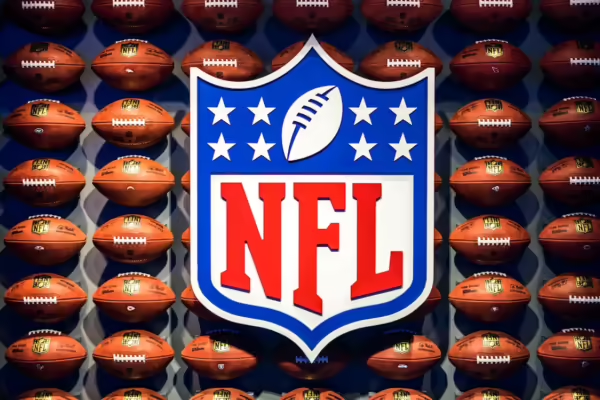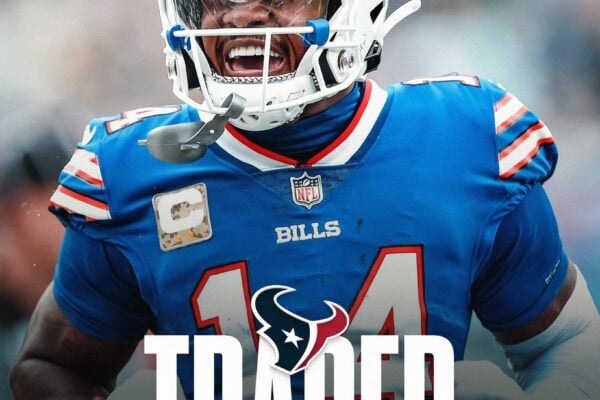Photo courtesy of Mike Nowak/Los Angeles Chargers
Four teams remain alive for a spot in Super Bowl LV, but two of the NFL’s top five all-time leading passers will be calling it quits.
On Wednesday, Indianapolis Colts’ quarterback Philip Rivers announced his retirement after 17 years in the NFL. The news comes just days after reports surfaced that New Orleans Saints’ signal caller Drew Brees would do likewise.
For two legends, it seems only fitting that they go out together.
Former Teammates
Although they made their NFL marks in different cities, there was a time when Brees and Rivers were teammates involved in a quarterback controversy. For the 2004 and 2005 seasons, both were members of the San Diego Chargers.
A second-round pick of the Chargers in 2001, Brees was 30-28 as a starter for San Diego. In 2004, Brees made his first Pro Bowl, passing for 27 touchdowns and leading San Diego to a 12-4 record. Watching from the bench was a rookie from NC State named Philip Rivers.
The fourth pick in the 2004 NFL Draft, Rivers was acquired on draft day from the New York Giants in exchange for No. 1 overall pick Eli Manning. Although Brees led the Chargers to back-to-back winning seasons in 2004 and 2005, they made just one playoff appearance. It ended in a 20-17 overtime loss to the New York Jets in the Wild Card game in 2004.
The 2005 season ended with back-to-back losses to the Kansas City Chiefs and Denver Broncos. San Diego finished 9-7 and missed the playoffs.
Over the final two games, San Diego managed just 14 total points. In the regular season finale — a 23-7 loss at Denver — an ineffective Brees was replaced by Rivers. It would be Brees’ final game with the Chargers.

Drew Brees (9) and Philip Rivers (17) spent two seasons as teammates with the San Diego Chargers. (Mike Nowak/Los Angeles Chargers)
New Eras Lead to Legendary Careers
Following the 2005 season, Brees would sign with New Orleans. Rivers, on the other hand, became a mainstay behind center for the Chargers for the next 14 years.
Rivers was never able to lead San Diego to the Super Bowl. Over his 14 years as a starter however, the Chargers finished with a losing record just four times. Although Rivers never played on Super Sunday, there were plenty of close calls along the way.
In his first season as a starter, Rivers led San Diego to an NFL-best 14-2 record. Unfortunately for San Diego, it was unable to hold an 8-point fourth-quarter lead in the AFC Divisional round as the Chargers fell to the New England Patriots, 24-21.
San Diego won the AFC West in four straight seasons from 2006-09, but advanced to the AFC Championship just once. In 2007, the Chargers finished 11-5 before opening the postseason with wins over the Tennessee Titans and Indianapolis Colts. One win away from the Super Bowl, San Diego would ultimately fall to the undefeated Patriots in the AFC Championship, 21-12.
During his career, Rivers took the Chargers to the playoffs six times. That’s the same number of appearances they had in the 24 years prior to his arrival.
For Rivers’ final three seasons with the franchise, the Chargers played in Los Angeles. He spent his final season with the Colts in 2020. Rivers finished 10th in the NFL with nearly 4,200 passing yards while leading Indianapolis to 11 wins — its most in six years.
While Rivers was a mainstay for San Diego and eventually Los Angeles, Brees carved his own legacy in the “Big Easy”. Brees wasted no time immersing himself into the community as Brees famously helped rebuild the city ravaged by Hurricane Katrina.
Want more NFL content?
Discussion like this takes place every day in our forum! Join today!
In 15 years with the Saints, Brees made 12 Pro Bowls and led the NFL in passing yards seven times. Over that stretch, New Orleans never won fewer than seven games. With Brees at the helm, the Saints won seven NFC South titles and made nine playoff appearances.
Brees’ final years were marred by earlier-than-expected playoff exits. In 2009 however, the former Purdue star delivered New Orleans its lone championship. After a 13-3 regular season, Brees outdueled Hall of Famers Kurt Warner of the Arizona Cardinals and Brett Favre of the Minnesota Vikings in the playoffs.
In overtime of the NFC Championship, Brees led the winning drive as Garrett Hartley knocked through the game-winning field goal as New Orleans beat Minnesota for its first-ever NFC crown, 31-28. All that stood in front of Brees and the Saints was another future Hall of Famer in Peyton Manning and the Indianapolis Colts.
In Super Bowl XLIV, Brees would pass for 288 yards and two touchdowns as the Saints rallied from 10 points down for a 31-17 victory. Trailing by one in the final quarter, Brees’ 5-yard touchdown pass to Jeremy Shockey with less than six minutes to play put the Saints ahead for good. Tracy Porter’s 74-yard interception return for a touchdown off Manning would seal the victory. Brees was named the game’s Most Valuable Player.
Unfortunately for Brees, that would be his lone Super Bowl appearance. He would reach the NFC Championship just once more. That ended in controversy as New Orleans fell to the Los Angeles Rams in overtime by a 26-23 score to close 2018.
A Contrast of Styles
Although both enjoyed Hall of Fame-caliber careers and spent time in San Diego, there are few similarities beyond that. Both were regarded as leaders, but their styles were different.
An undersized quarterback at 6-foot-0, Brees was known for being a great teammate, his charity work and his pinpoint accuracy. Brees leaves as the NFL’s all-time leading passer. Should Tampa Bay Buccaneers’ quarterback Tom Brady return for a 22nd season in 2021, that distinction may not last much longer. In addition to his on-field accomplishments, Brees’ charitable work earned him Walter Payton NFL Man of the Year honors in 2006.
A 6-foot-5 prototypical gunslinger with an unorthodox delivery, Rivers will retire ranking fifth all-time in passing yards. Rivers made eight Pro Bowls throughout his career. He led the NFL in passer rating and touchdown passes in 2008, passing touchdowns in 2010 and completion percentage in 2013.
Regarded as a fiery competition, Rivers was one of the NFL’s most renowned trash talkers. A devout Catholic and father of nine, Rivers managed to get under opponents’ skin without uttering a curse word.
Former teammates, it seems only fitting that Brees and Rivers go out at the same time. The two leave the game as two of the best statistically all-time, becoming staples of franchises located more than 1,800 miles apart.
For Rivers, there were good times and bad. But there was no doubt that when he was behind center, his team was going to get everything he had.
Aside from retiring as the league’s all-time leading passer, Brees helped bring hope to a city when it needed it most. He also turned it into a winner.
Time will tell what the future holds for the two surefire Hall of Famers. While they combined to play in just one Super Bowl, they brought joy and entertainment to football fans everywhere for a combined 37 years.
What a run it was.
Mike Ferguson is the managing editor for Fifth Quarter. Be sure to follow Mike on Twitter at @MikeWFerguson. Follow all of Mike’s work by liking his Facebook page.




